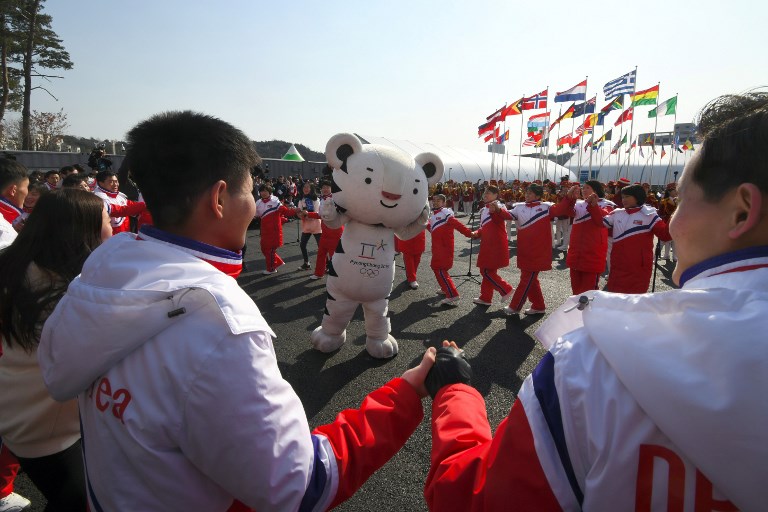
PYEONGCHANG, South Korea (AFP) — More than 500 North Koreans are converging on Pyeongchang in South Korea for the 2018 Olympics, in a historic cross-border exchange between two countries still technically at war.
AFP looks at what we know so far about the visitors from the isolated, nuclear-armed state.
Kim’s sister
The sister of North Korean leader Kim Jong Un will visit South Korea for Friday’s Pyeongchang Winter Olympics opening ceremony and meet with South Korean President Moon Jae-in for lunch on Saturday, according to the South Korean government. Yo Jong will become the first member of North Korea’s ruling dynasty ever to visit the South. Analysts say she is being groomed by her brother to become one of the country’s top leaders. Yo Jong is a senior member of North Korea’s ruling Workers’ Party.
The others
More than 500 North Koreans are either in South Korea or on their way as part of a delegation officially led by North Korea’s ceremonial head of state, Kim Yong Nam, who arrives Friday. He is technically the most senior North Korean official ever to travel to the South, but blood is thicker than water. Also in the delegation is Ri Son Gwon, who as head of the Committee for the Peaceful Reunification of the Country is responsible for inter-Korean affairs.
The athletes
There are 22 North Korean athletes in Pyeongchang. Twelve are women ice hockey players who have joined a unified Korean team. Three cross-country skiers, three alpine skiers, two short-track speed skaters and two pairs skaters, Ryom Tae Ok and Kim Ju Sik, complete the contingent. Only Ryom and Kim are seen as having any chance of winning a medal.
The cheerleaders
Dubbed the “army of beauties,” 229 young women chosen for their looks and loyalty to the Kim regime are in Pyeongchang to cheer the North Koreans during the Games. They are so few competitors from the North, however, that the cheerleaders will also be egging on their southern neighbors. The smartly turned out young women stole the hearts of Southerners when the cheer squads first performed in the South at the Busan Asian Games in 1992. Emotions might be a little more complicated these days, however, because in the ensuing period the North has developed nuclear weapons and staged repeated ballistic missile tests.
Fashion
The cheerleaders turned heads when they arrived in the South in knee-length scarlet coats with fur hats, fur collars, and matching fur cuffs. “I want that hat!” wrote one South Korea fan on Twitter. At an evening reception, they stunned in classy red two-pieces with dinner-jacket style lapels. They were next seen dressed like majorettes with red peaked caps and golden epaulettes for an Olympic Village ceremony. “I don’t want to say it but North Korea’s cheering squad is quite pretty. You can throw stones at me but the truth is the truth,” said another observer on Twitter.
Protests
Anti-North Korean protests have been vocal in the lead-up to the Olympics. Hundreds rallied on Tuesday as a ship from North Korea carrying around 120 performers docked at the eastern port of Mukho. They defaced pictures of North Korean leader Kim and burned a North Korean flag and a unified Korea flag. North Korea’s state media referred to the protests as a “spasm of psychopaths.”
Diplomacy
South Korean President Moon Jae-in will meet for lunch on Saturday with the North Korean delegation including leader Kim’s increasingly influential sister Yo Jong. There appear to be no plans for a meeting between the North Koreans and the United States delegation. US Vice-President Mike Pence warned: “We will not allow North Korean propaganda to hijack the message and imagery of the Olympic Games.”
‘Peace’ Olympics
The Pyeongchang Olympics have triggered a thaw in frosty ties between the North and South, and Seoul refers to the Games as the “Peace Olympics.” But it is unclear whether the warming will outlast the closing ceremony. The North has developed nuclear weapons and tested ballistic missiles in the run-up to the Olympics, and one day before the opening ceremony held a military parade in Pyongyang. South Korea and the United States are also due to resume military drills, which usually infuriate Pyongyang, after the end of the Paralympics on March 25.
© Agence France-Presse







